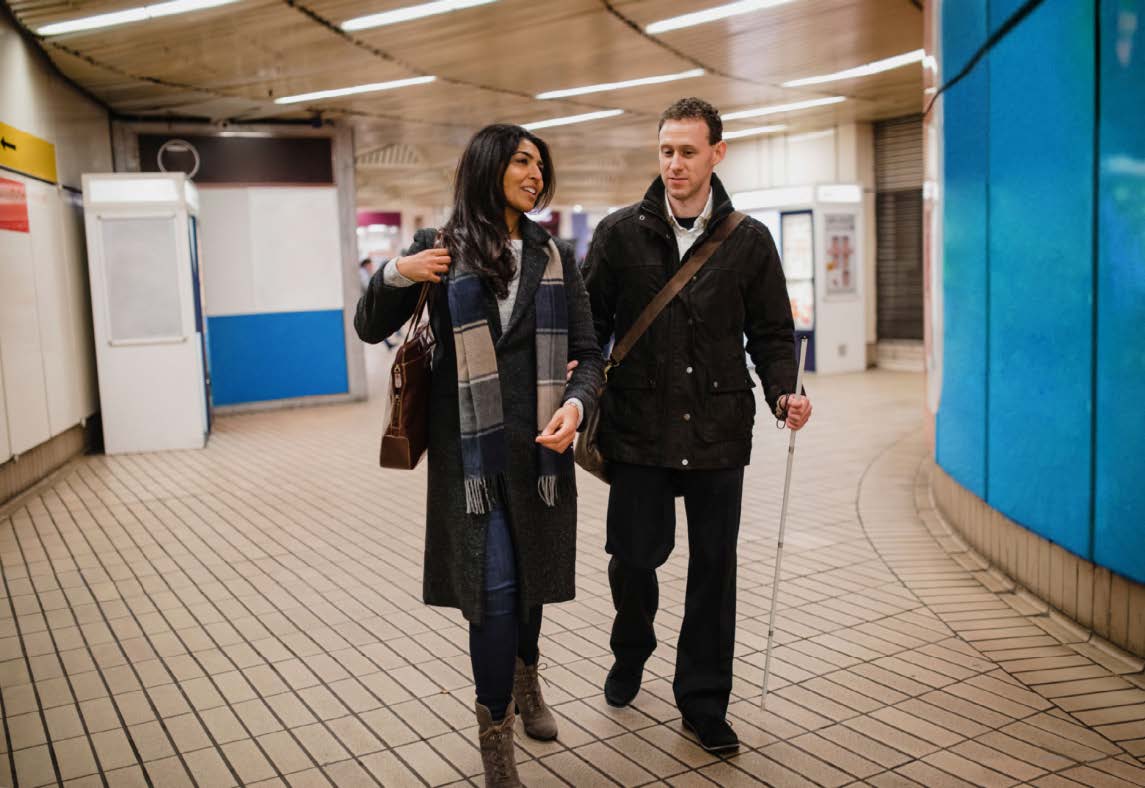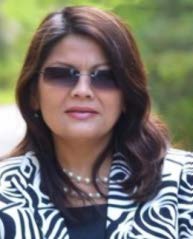HEARTSIGHT
CHRISTINA LLANES MABALOT

GETTING TO WORK: "I advise persons with disabilities transitioning to employment to develop their passion for bringing in some form of income. When, and if possible, creating work or starting a small business can be a winning option."
Gainful Employment
My rejection led to an epiphany! I would build a school, practice my brand of selecting the best teaching methods suitable to each learner, open the school doors to the marginalized, and turn my dream to reality!
Gainful employment is the prize one gets for working through the grueling years of education – or so I thought. Earning a master's degree in education was a milestone for me, but after receiving a stack of rejection letters from schools I had applied to, I seemed to have reached a dead end. I put everything on the line, my years, blood, sweat, tears, and my future, only to be a bum with a post-graduate degree.
Back then, in the Philippines, employment doors would be shut to persons with disabilities as society perceived them unproductive. This cultural barrier was aggravated by the rising rate of unemployment at that time, which meant that persons with a disability were much less likely to be employed. Also, employment options for people with visual impairment were stereotyped; they were either masseurs/masseuses, musicians, or social workers. I loved music, but it didn't like me. My hands were too puny for me to be a masseuse, and I did not have any social work background. Educated and successful visually-impaired professionals were more of an exception than the rule, and some with post-graduate education were even forced to go out to the streets to beg for their survival.
Transitioning from being a student to being a productive adult in the community entails navigating through the longest rite of passage. This process begins with stripping one's self of all pride, confidence, previously established identity, and options. There wasn't a learning institution I could work for that I had not targeted for application. I considered going back to school to pursue social work, but realized that would not assure me of a job. At most, going back to school would make me a… professional student.
I desperately searched for clues that could lead to employment. I replayed my job interviews mentally and discerned that my philosophy of education played a significant part in my rejection. I believed in learner-centered education and would practice the method that works best for a child, and this didn't go well with schools, because they specialized in specific ways of teaching. I wasn't ready to compromise my conviction just to get employed.
"I wanted a way to plant the seed of the desire to learn in every young heart, even if I had to do it alone!" I reasoned.
The light bulb came on. My rejection led to an epiphany! I would build a school, practice my brand of selecting the best teaching methods suitable to each learner, open the school doors to the marginalized, and turn my dream to reality!
I rounded up the people who believed in my vision. We founded the "Tuklasan" (Filipino word for discovery) Center for Children Foundation, a nonprofit organization that aimed to bring out the best in every child. Reflecting on the hardships I went through as a visually-impaired individual, I was dedicated to turn the tables and empower children by providing more accessible education in a nurturing environment. I struck an exchange deal with my father; I'd use the ground floor of our house for my school if I covered the cost for remodeling and repair. For 12 years, Tuklasan Center for Children Foundation provided pre-school education to students with and without disabilities and those who were economically marginalized. Realizing the difficulty of transitioning, I made sure to facilitate and follow through with the children moving up to elementary schools.
I became an entrepreneur, investing my time, treasure, and talents in work I was called to do, and earned a decent livelihood from it. Frequent transitioning through the different phases of my life also seasoned me to be adaptable and to flourish in diverse social and cultural climates.
Relocating to my husband's home city "I felt fulfilled doing significant and sustainable work for the differently-abled community. I loved my work and would have done the job even if I didn't get paid, that is, if I didn't have bills to pay." where we decided to raise our family, I then had the privilege of building a unique educational component in a regular school. It was the perfect setting for inclusion. We accommodated students with visual and hearing impairments and integrated them into the school. Simultaneously, I set up a livelihood program for visually-impaired masseurs to deliver services to reputable hotels. Later, I partnered with a company for medical transcription to include visually-impaired trainees. I felt fulfilled doing significant and sustainable work for the differently-abled community. I loved my work and would have done the job even if I didn't get paid, that is, if I didn't have bills to pay.
In today's volatile marketplace, landing a job may be difficult, especially for those with special needs. Compelled to earn a living, persons with disabilities often find themselves constricted into roles that are out of line with their abilities, interests, and talents. St. Thomas Aquinas said, "There can be no joy in living without joy in work." I believe that a job is doing something that you get paid for, but work is doing something that you live for. I advise persons with disabilities transitioning to employment to develop their passion for bringing in some form of income. When, and if possible, creating work or starting a small business can be a winning option.
The success story of a father and son million-dollar business, John's Crazy Socks, testifies to this principle. John's Crazy Socks, named after its co-founder, John Lee Cronin, a young man with Down syndrome, was born out of John's love for crazy and unique socks. John didn't like the options that were available to him in his last year of high school, so he thought that the best way to find a job he would love was to create one. Today, John's Crazy Socks hires people with various abilities and gives five percent of earnings to the Special Olympics while spreading happiness. Check their website at john-scrazysocks.com
CURRENT EMPLOYMENT
When my family migrated to America, I realized that I could not pick up from where I left off in my entrepreneurial track record. I have had to work in corporate America, which isn't a bad thing because I landed in a good company. The company I work for is one of the largest and most reliable networks in the wireless industry; it is also the best equal opportunity employer in mainstream America. Its values include diversity and inclusion, ideals which I uphold. My next goal is to link my current job with my purpose, one of which is to make the world of people with special needs better through what I do. I want to be the face of equal opportunity for the company I serve. After all, I am a woman, member of a minority group, and a person with special needs. Let me put a cherry on top of that cake; I'm approaching the age of senior citizenship. I'll soon be representing four sectors and would be a perfect example of equal opportunity and diversity.•

HEARTSIGHT
Christina Llanes Mabalot is physically blind from aniridia, but has a vision. She enjoys touching people's lives to bring out the best in them. "Heartsight" explains her ability to see with her heart. Christina earned her B.A. degree and Masters in Education from the University of the Philippines, Diliman, specializing in Early Intervention for the Blind. She later received Educational Leadership training through the Hilton-Perkins International Program in Massachusetts, then worked as consultant for programs for the VI Helen Keller International. She has championed Inclusive Education, Early Intervention, Capability Building and Disability Sensitivity programs. She was twice a winner in the International Speech contests of the Toastmasters International (District 75) and has been a professional inspirational and motivational speaker. Christina is blissfully married to Silver Mabalot, also physically impaired, her partner in advancing noble causes. Their children are Paulo and Jem, who has aniridia. Visit leadershiptovision.com